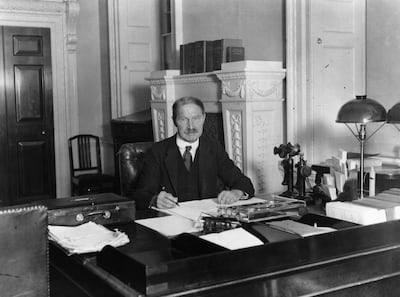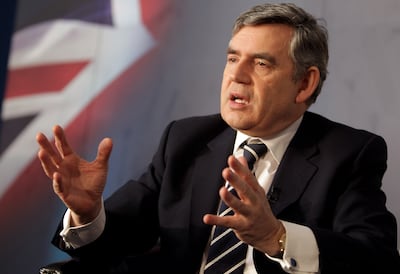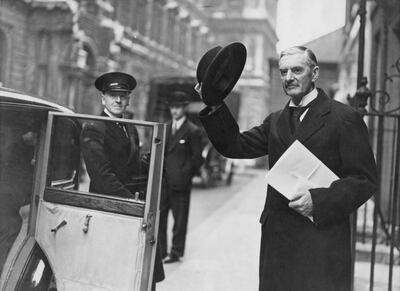Boris Johnson will clock up the 1,049th day of his premiership on Tuesday, equalling the number of days his Labour Party predecessor Gordon Brown spent as prime minister, regardless of the result of Monday's vote of confidence in his leadership.
Even if he were to lose the vote, Mr Johnson would remain in place until a successor is found, allowing him to match Mr Brown, who led Britain between June 2007 and May 2010.
He has already overtaken four prime ministers with the shortest time in office since 1900.
Andrew Bonar Law (211 days in 1922-23) - Sometimes called 'The Unknown Prime Minister', the Conservative leader who won an election after the fall of David Lloyd George's coalition resigned while seriously ill with throat cancer and died later that year.

Alec Douglas-Home (364 days in 1963-64) - The first prime minister to become an MP while already in Downing Street. After holding Cabinet positions while sitting in the House of Lords, he disclaimed his hereditary peerage so he could stand for election once he gained the keys to Number 10.
Anthony Eden (644 days in 1955-57) - Served three periods as foreign secretary before becoming prime minister. Best known for his controversial handling of the Suez crisis in 1956, during the second year of his premiership. Resigned due to ill health only two months after ordering the end of the Suez operation.
Henry Campbell-Bannerman (852 days in 1905-08) - The last Liberal politician to win an outright majority, he was the first First Lord of the Treasury to be officially called 'Prime Minister'. He was also the only person to date to simultaneously hold the position of PM and Father of the House, the term given to the MP with the longest continuous service.
Boris Johnson (1,048 days from 2019 - June 6 2022, remains in post) - Oversaw Brexit — Britain's departure from the EU — and steered the UK during the Covid pandemic. He became the first prime minister to break the law after receiving a fine for breaching Covid rules, and was also the first PM in nearly 200 years to marry while in office.
Gordon Brown (1,049 days in 2007 - 2010) - Eventually took over the top job after a decade as chancellor in Tony Blair's government. His premiership coincided with the global financial crisis.

Neville Chamberlain (1,078 days from 1937-1940) - Once he has passed Mr Brown, the next prime minister on the list for Mr Johnson is Neville Chamberlain. Mr Johnson would overtake Mr Chamberlain in just over a month, on July 7. Chamberlain is best known for his policy of appeasement towards Nazi Germany. He led the UK through the first eight months of the Second World War before resigning.

Theresa May (1,106 days in 2016-2019) - Mr Johnson's immediate predecessor as prime minister, Theresa May, clocked up three years in the job. Mrs May survived a confidence vote in 2018, despite losing the support of Tory colleagues over her ability to deliver a Brexit deal — and resigned five months later. To overtake her, Mr Johnson needs to remain as PM until August 4 this year.














































